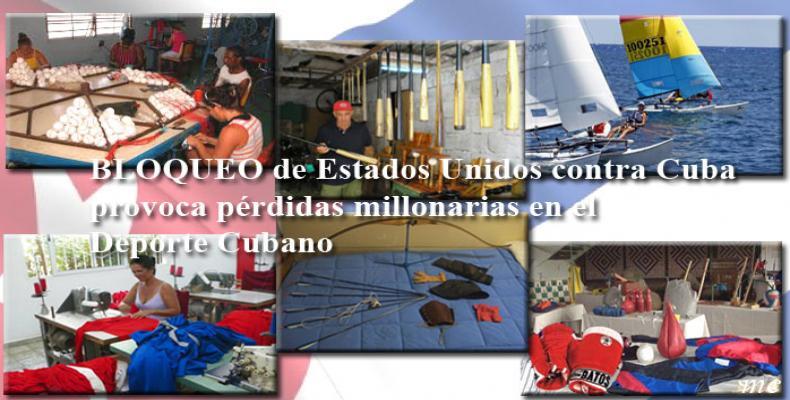Cuba’s sporting movement is not immune to the harmful impact of the economic, commercial, and financial blockade imposed by the United States on Cuba for over five decades.
During an October 19 press conference in the Adolfo Luque function room at Havana’s Latinoamericano stadium, officials from the National Institute of Sports, Physical Education and Recreation (Inder) reported the numerous and persistent damages caused by this inhumane policy on Cuban sports over the years.
One of the most severely affected disciplines is baseball, as most of the equipment need to play the sport is manufactured in the United States. Cuba’s inability to acquire such items from its neighbor means that the island’s sporting entities are forced to import them via third countries, increasing costs and delays due to shipping issues.
For example, Cuba recently signed an 114,489 UDS contract with a Mexican company to provide 3N2 baseball cleats and other gear. The same items would have cost the island 22,789 USD less had it been able to purchase them from the U.S.
Meanwhile, Cuba currently imports 14,000 Mizuno balls from Japan for its National Series competition at a cost of about eight USD a ball, when it could purchase Rawlings brand balls from the U.S. for around five dollars each.
According to Manuel Trobajo, Inder’s quality assurance manager, over recent years ball imports from the United States have declined considerably, dropping by at least five units per facility. “It’s very difficult to acquire sporting supplies from the United States for the development of our bases, sporting schools, and national teams,” stated Trobajo, adding that Cuba’s main suppliers are in Europe and China, where the cost of such items is always higher than those sold in the U.S.
Teaching is another area negatively impacted by the over half a century-long absurd policy, which makes academic and scientific sporting exchanges between U.S. and Cuban institutions difficult, as well as organizing international congresses, workshops, clinics, and other activities which contribute to the development of athletes and sports in general.
In this regard, Pavel Pino, director of Inder’s Sports Medicine Institute, noted that although President Trump’s new Cuba policy is problematic, the fact that scientific-sporting institutions from the U.S. continue to be interested in working with Cuba across all areas of the sector, is evidence that the blockade is not supported by U.S. citizens.
During the press conference, Inder officials confirmed that a Cuban Boxing Gala will be held October 27, in Havana’s Astral Theater, where the seven-part event will kick off with a tribute to the historic leader of the Cuban Revolution Fidel Castro Ruz, three times Olympic champion Teófilo Stevenson and veteran boxing coach Alcides Sagarra.


